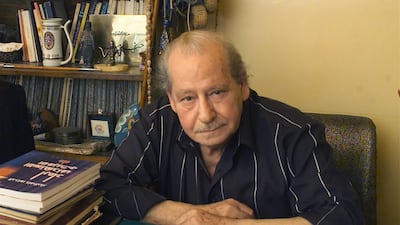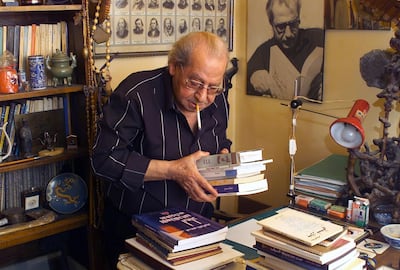The eminent Syrian novelist Hanna Mina, who said that his writing explored “human suffering and joy”, has died in Damascus at the age of 94. Syrian state media reported on Tuesday that Mina had died “after a long battle with illness”.
Mina, who wrote more than 40 novels, only two of which were translated into English but many of which were adapted for film and television, was one of the first Arabic writers to use “social realism” in his writing. He raged against colonialism, corruption and injustice across the Middle East.
He is perhaps best known for his 1973 novel, Sun On a Cloudy Day, in which he tells the story of a young Syrian man who rejects his wealthy family in order to spend time with the poor and the oppressed. The novel, which was translated into English in 1997, is set during the French Mandate of Syria and offers a damning critique of the Syrian aristocracy, many of whom aligned with the French in what Mina saw as an unforgivable act of treachery.
Bassam Frangieh, a professor of Arabic in the United States and one of the translators of Sun On a Cloudy Day, told The New York Times: "Hanna Mina always sided with the poor against the rich, against corruption. He was leading a literary revolution in his writing in order to create a new consciousness of the Arab people."
One critic wrote that the radical left-wing politics of Sun On a Cloudy Day "are only revealed in the subtlest, almost surreal manner. Like a glove being slowly turned inside out to reveal the lining, the theme of class oppression and revolt is at first just a hint, then a glimpse. By slow degrees the full hand is brought to light."
In 2005, Mina was awarded the Arab Writer’s Prize for his collected works and, in 2010, received the Mohamed Zafzaf Prize for Arabic Literature. During his acceptance speech, Mina said: “The Arab world is a whole cultural unit. I believe in my Arab world. I have taken part in its struggle for freedom. I wrote about and for it.”
His life
Mina was born on March 29, 1924, in Latakia, a port city on the west coast of Syria, though he spent much of his childhood in what is now southern Turkey. His family was so poor that Mina was taken out of education at an early age. One of Mina's later novels, The Swamp, featured memories from his childhood and was described by one critic as the "greatest autobiography in Arab novel-writing, and the most abundant in brutal honesty and wealth of thought".
Mina's youth was a free-wheeling mix of travel and odd jobs. He worked as a barber, a porter, and a sailor, before moving to Damascus in 1950. There he began working for a local newspaper and writing short stories. His first novel, The Blue Lamps, was published in 1954.
Much of his writing is inspired by the sea and he once said that "most of my work is wet with the water of a loud wave". Mina's novel, The Sail and the Storm, was included at number 14 on a list of the best Arabic novels of the 20th century.
Mina also helped to found both the Syrian Writers Association and the Arab Writers Union.
______________________
Read more:
The brilliant but troubling legacy of VS Naipaul
No such thing as culture in Dubai? Pick up Proust
Book review: 'Tales of Yusuf Tadros' explores how ‘suffering purifies’
______________________



